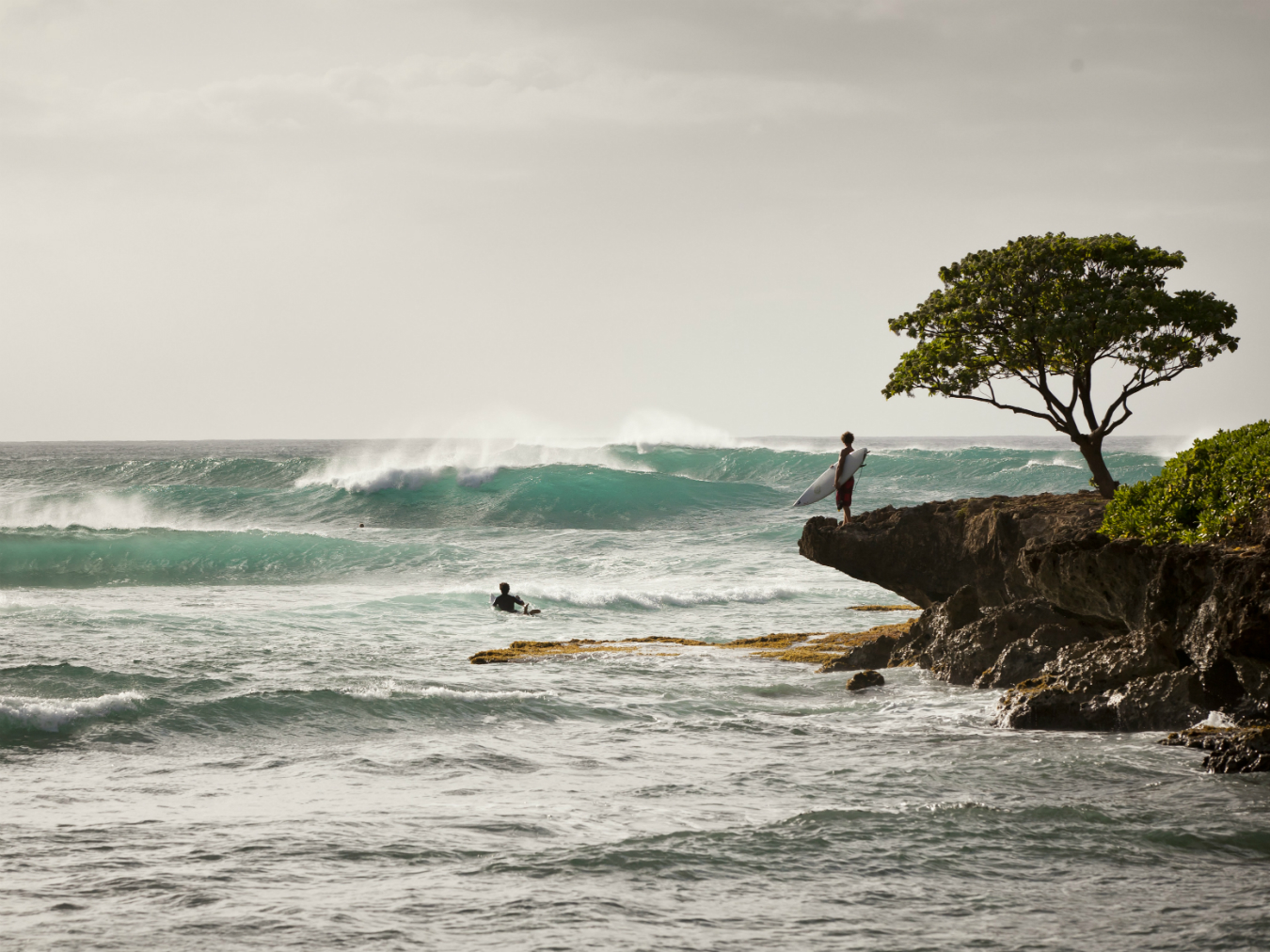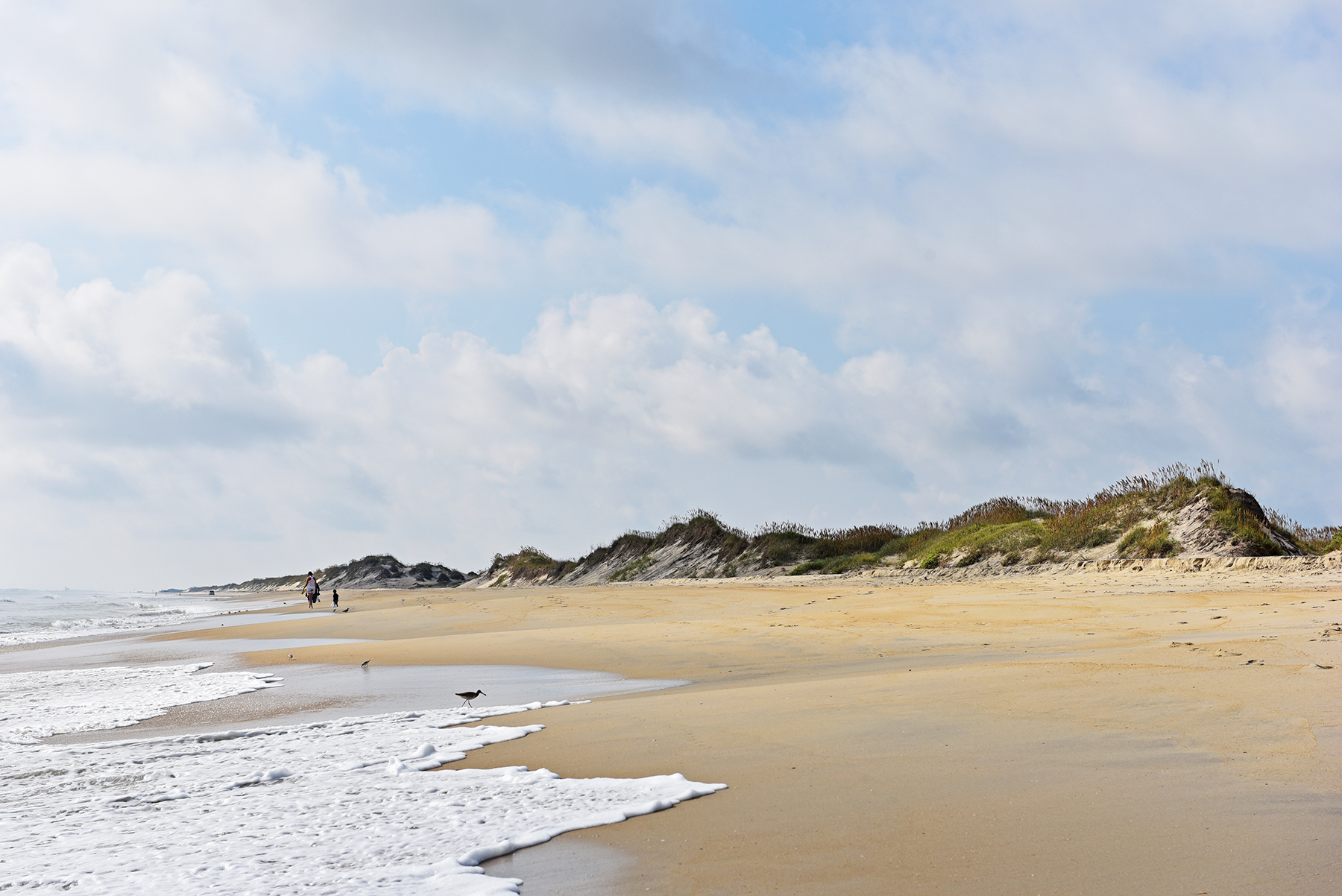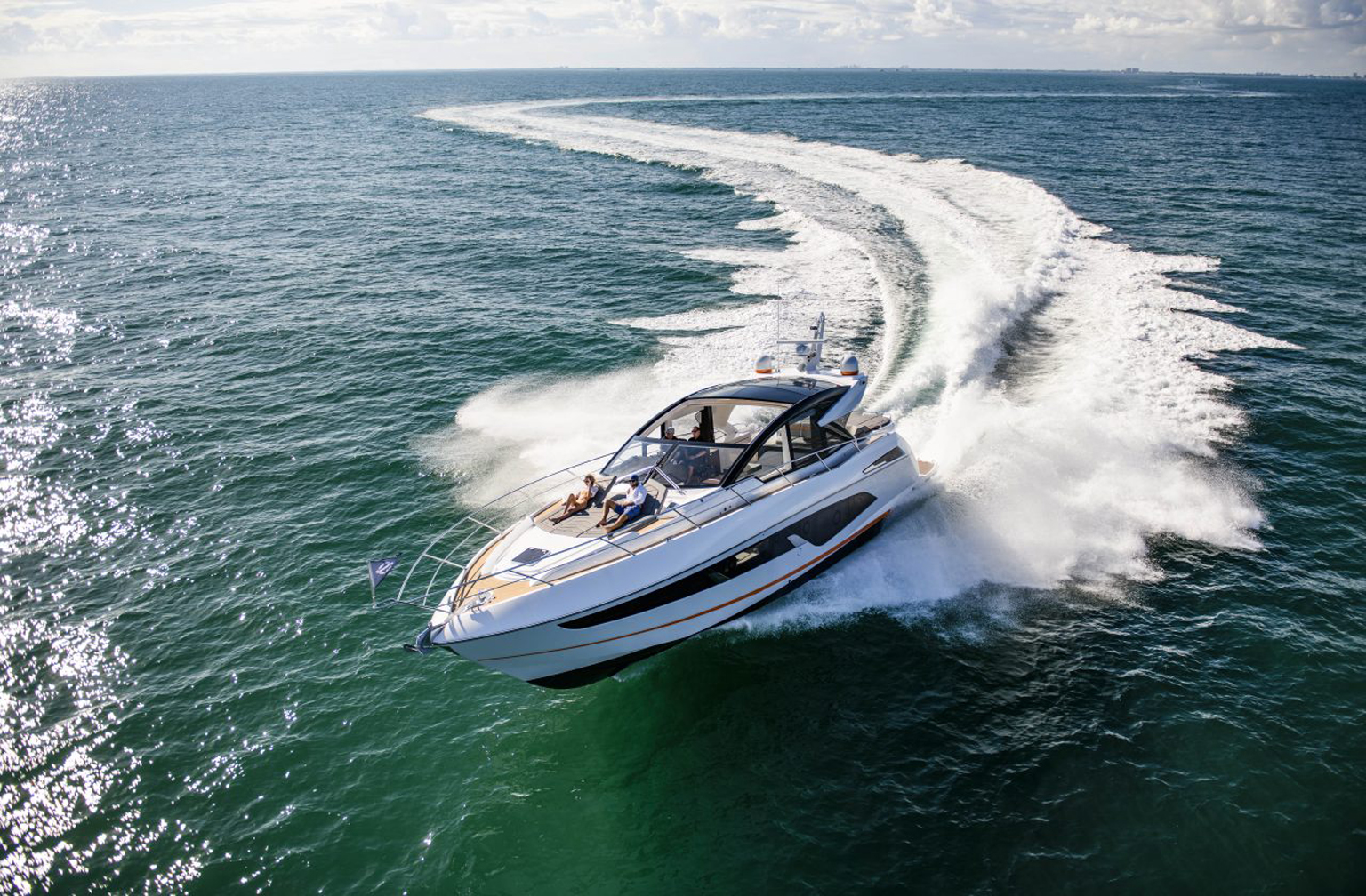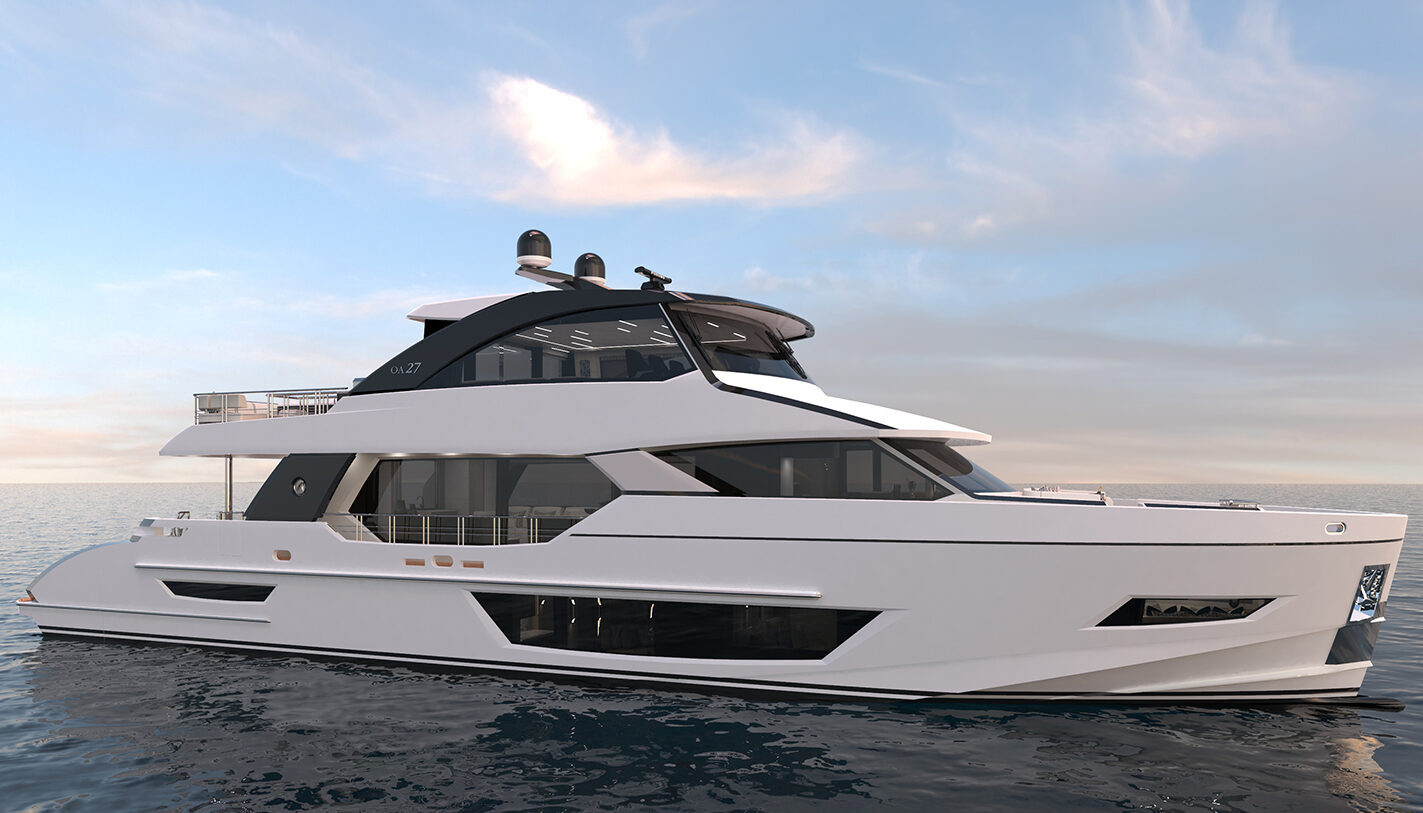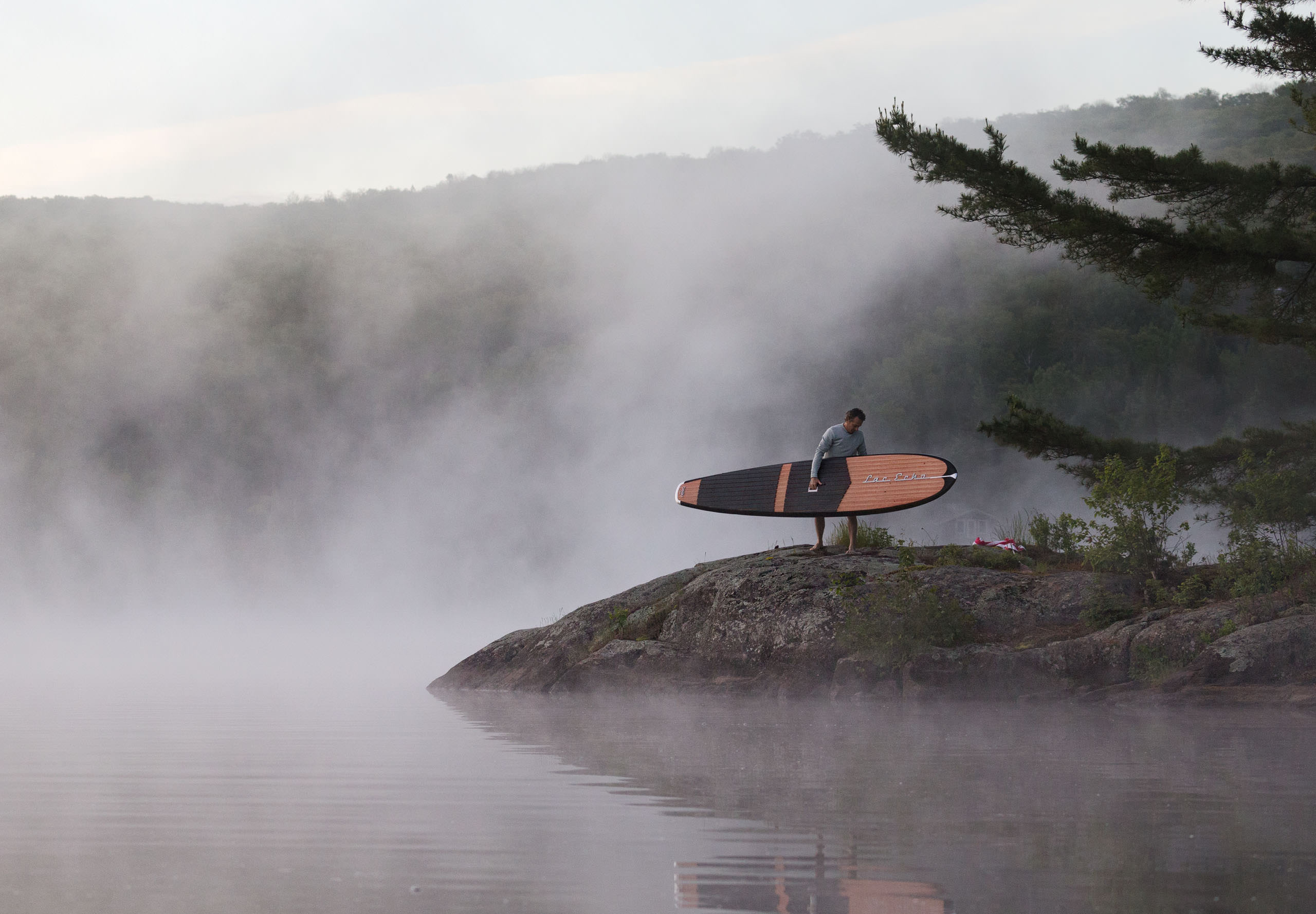
Beau Lake elevates waterside recreation. Photo by Olivier Staub.
Beau Lake Brings Harmonic Luxury to Waterside Recreation
The call of the water.
You’re sitting on a wooden dock, dangling your feet into the still, blue-grey water of a northern lake. A mist rises from the water’s surface. It’s early morning and eerily quiet. You look across the water at the mountains peering out from the opposite shore, the pine trees glistening in the rising sun, and you are struck by the impossible beauty of it all. You feel alone and at one. This is the kind of moment they write poems about, you think. Maybe you’ll take up painting.
Then your neighbour cranks up his stereo and lumbers by in a bright yellow plastic pedal boat, and you snap out of it.
This is where Paul Lavoie found himself two decades ago, the moment he first came up with the idea for Beau Lake. Lavoie was standing on his dock on Lac Écho in the Laurentian Mountains—a stretch of unspoiled Canadian wilderness a couple of hours north of Montreal—when he looked around and saw dock after dock littered with poor-quality waterfront accessories: plastic pedal boats, dreary orange life jackets, and cheaply made metal chairs, eyesore upon eyesore littering the shores of his serenity. “I turned and saw this garish piece of shit,” he says. “And I’m going, what is that doing on this lake—or any lake?”
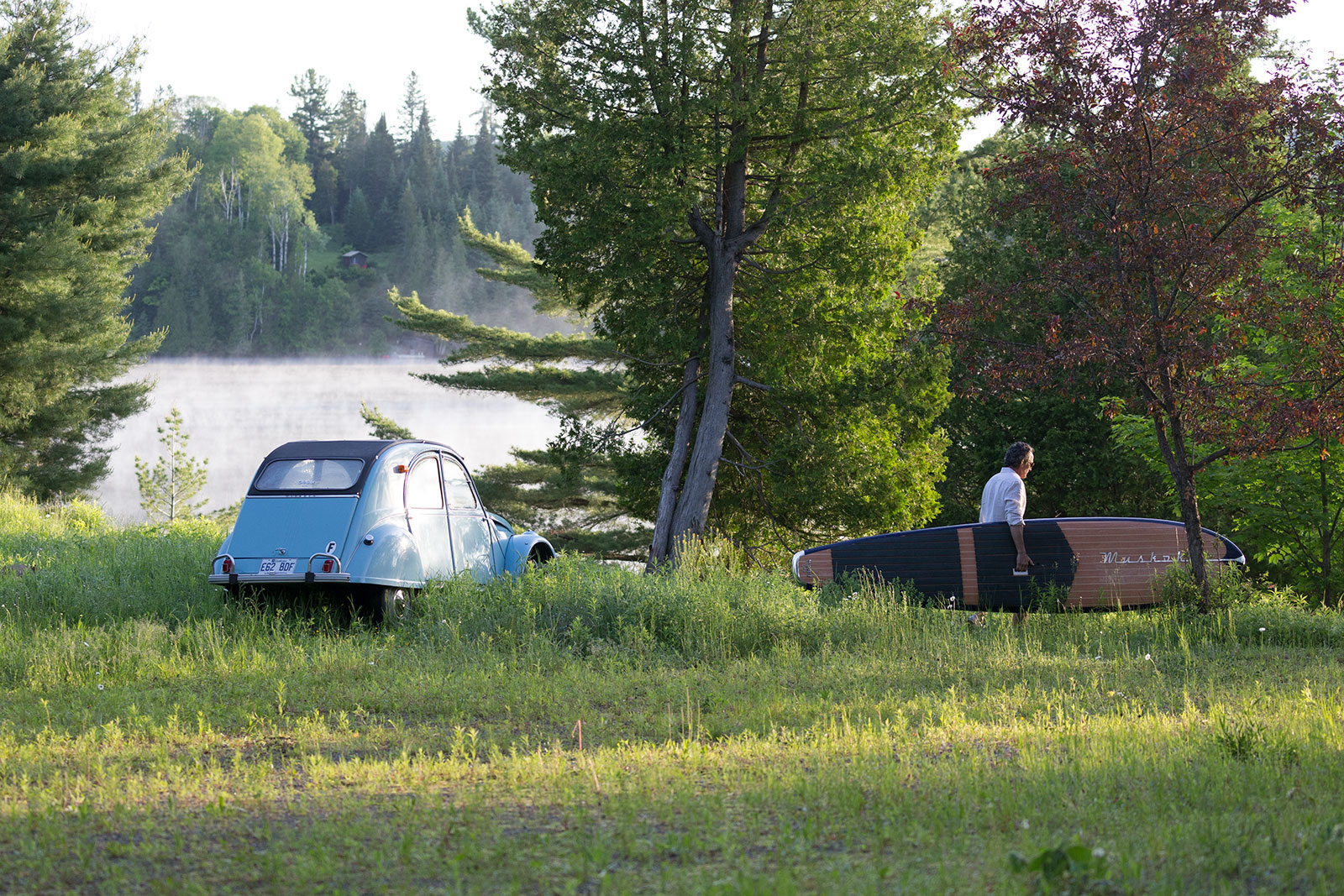
Photo by Olivier-Staub taken at Lac Écho in the Laurentian Mountains that inspired Beau Lake. The retro-inspired paddleboards, like the Muskoka, blend design and performance.
Lavoie’s brainwave was simple: what if there were waterfront accessories that actually looked good? What if there were products that took inspiration from nature rather than obscuring its beauty?
This, he thought, was an idea he could sell. His day job at the time was in advertising—a real-life Don Draper with thick-rimmed glasses and a charming French Canadian accent. As the co-founder of TAXI, he was busy building one of the most-respected (and most-awarded) agencies to emerge from Canada, opening offices in New York, Toronto, and Amsterdam, and working on campaigns and launches for the likes of Mini Cooper, Telus, and Viagra. With a company to run and loads of other work on his plate, he left the lake, flew back to New York, and put his waterside epiphany on pause.
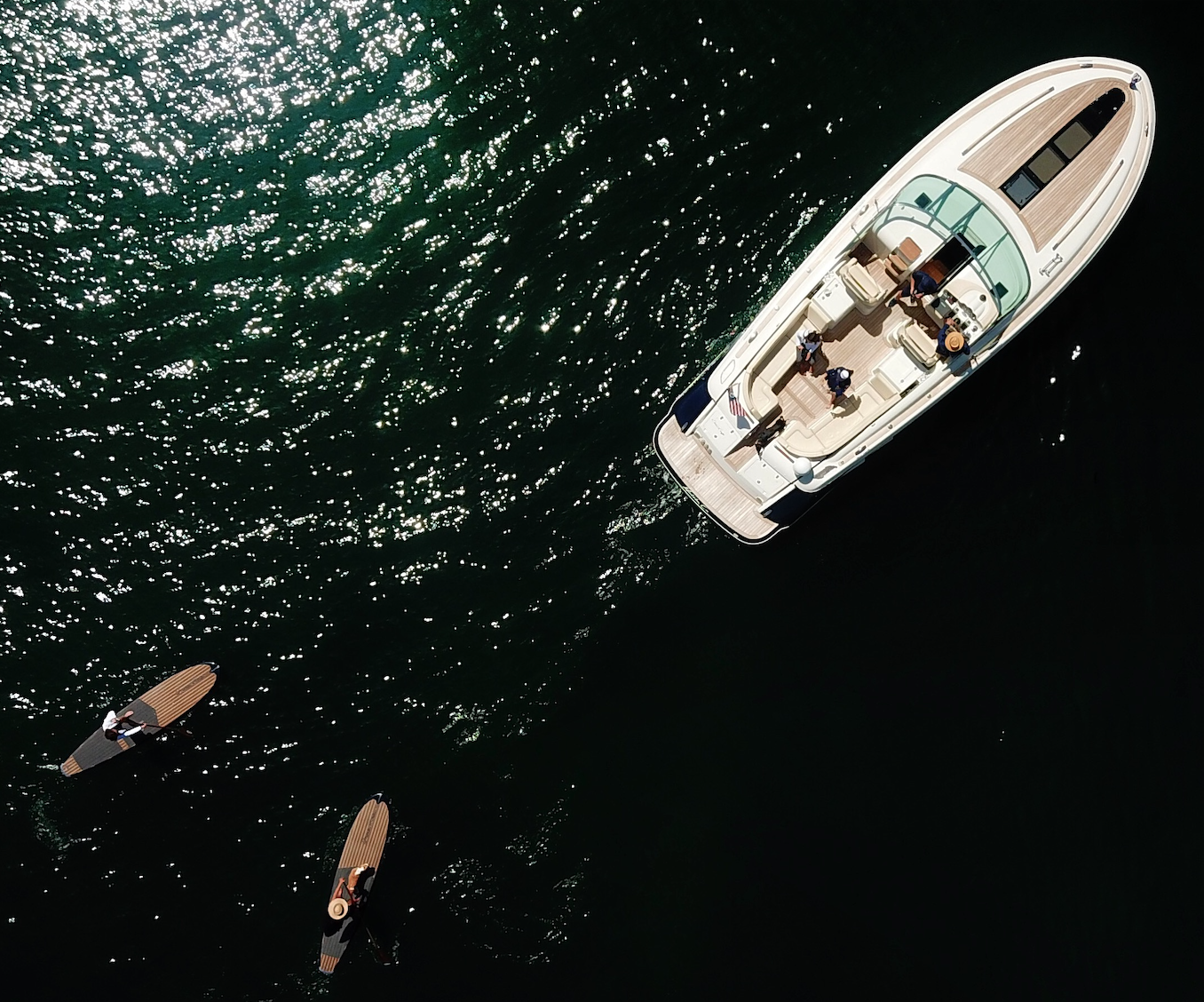
Beau Lake products take inspiration from nature rather than obstructing its beauty.
Then, in 2009, everything changed. Lavoie was in Toronto for a routine medical procedure, which went badly wrong. What should have been a week of recovery turned into 20 days in hospital. “What happened in those 20 days was really important,” he says. “I spent a lot of time alone and I had this quiet mind. I started thinking about what else can I do in my career? There should be something else.” Lavoie ultimately decided to sell the company he’d built. After staying on for a few years at TAXI as part of his contract and then taking a much-needed breather, he knew exactly what his next move would be.
Lavoie launched Beau Lake in 2017 with a twofold mandate: to provide luxury waterside recreation products and to use its platform to assist water charities with their objectives. (Currently, Beau Lake supports AquaHacking, a tech competition that helps young Canadian entrepreneurs find solutions to freshwater issues, as well as the Surfrider Foundation, which advocates to protect the world’s beaches.)
Paul Lavoie launched Beau Lake with a twofold mandate: to provide luxury waterside recreation products and to use its platform to assist water charities—the likes of AquaHacking and Surfrider Foundation—with their objectives.
The marketing maven leveraged his connections in the world of design to assemble an advisory board that reads as a who’s who of Canadian talent and entrepreneurial experience, including Joe Mimran, of Club Monaco and Joe Fresh fame; architect Todd Saunders, best known for his work on the Fogo Island Inn; and Paul Rowan, co-founder of the incredibly successful product and houseware design firm Umbra. Beau Lake’s co-founder, Lee Kline, was also a part and maintains close ties to the brand.
“My background is to take a product or a service and create an appealing infrastructure for it to exist and be sustainable in the marketplace,” Lavoie says. “Luxury is about heritage and materials and quality. But more than anything, it’s about storytelling.”
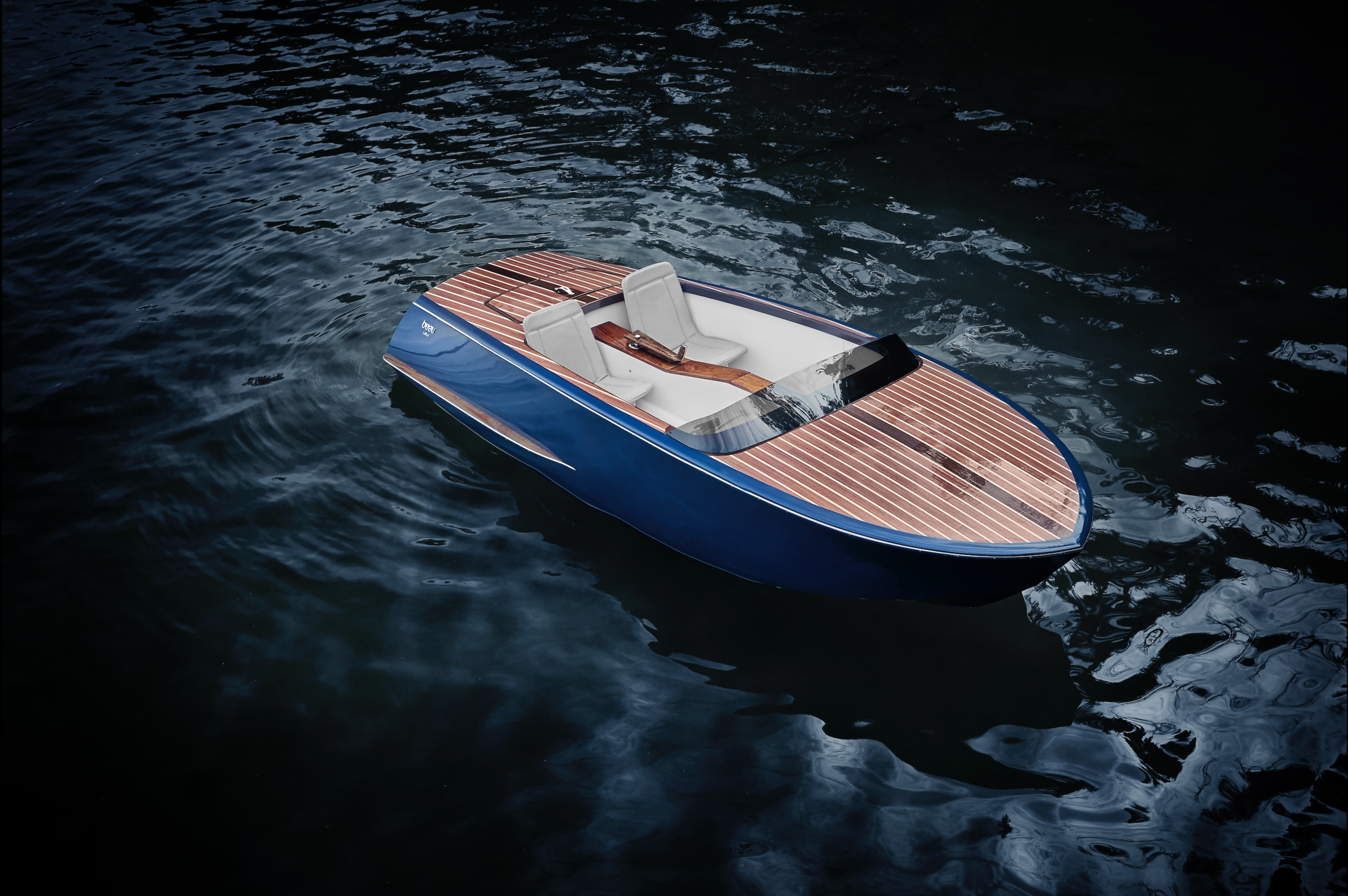
The St. Tropez may well just be the world’s most beautiful pedal boat. Photo by Chris Gordaneer.
Beau Lake products, from the midcentury modern–inspired paddleboards to the Tahoe and Lugano electric boats reminiscent of vintage 1950s runabouts, are very much design driven. As much as possible, they are manufactured in Canada by top-flight nautical designers and producers. The current pride of Beau Lake’s lineup is the St. Tropez, the answer to Lavoie’s original desire for a high-end, high-design pedal boat. With a cockpit of solid mahogany and a built-in cooler and champagne bucket, the St. Tropez (designed by Steve Killing, whose acumen includes high-performance sailboats and yachts for America’s Cup) is the very spirit of Beau Lake—a pleasure craft that puts equal emphasis on both pleasure and craft. Only 10 prototype versions of the St. Tropez have been made.
On Lavoie’s peaceful Laurentian lake, motorboats are not allowed. Nor are they allowed in Beau Lake’s product lineup. The company’s boats are all gasoline-free—the Tahoe and Lugano feature silent, eco-friendly electric motors. Sustainability is central to everything the company produces, an ethos summed up in Lavoie’s characteristically catchy tagline “The water is calling,” a reference not just to playful days on the lake but also to the threat freshwater ecosystems are currently facing and the lack of clean water available to two billion people each day. “One of the things I’ve said from the beginning is that the real luxury is water itself,” Lavoie says. “Every decision is driven by that.”
To that end, Lavoie and his team are developing a series of products and partnerships that actively work to preserve lakes and rivers across North America. The company is currently in discussion to do a product partnership with One Drop, the foundation started by Cirque du Soleil founder Guy Laliberté, which aims to ensure sustainable access to fresh water for underserved communities around the world. And Lavoie has been adamant that part of Beau Lake’s profits be put toward similar ends. “Beau Lake is like a canvas,” he says. “I really believe we can be profitable and at the same time do good. It’s an amazing canvas for water.”
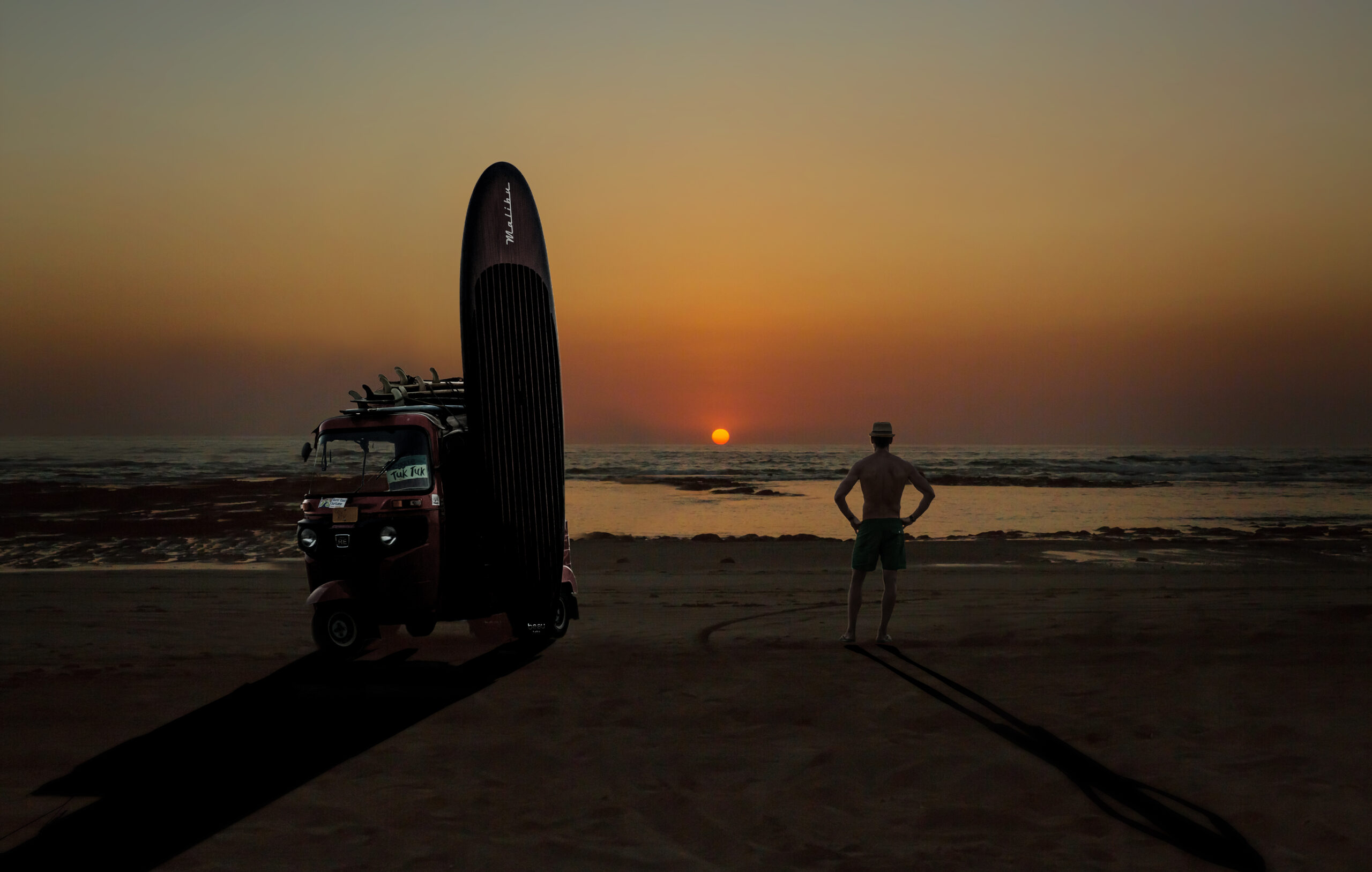
Beau Lake’s mission is to enhance the waterside experience. Photo by Trevor Francis.
Amid the gloom of the pandemic, last year was Beau Lake’s busiest ever. People around the world were flocking to cottages and second homes; waterfront property values in places like the Laurentians, Muskoka, and the Hamptons skyrocketed, as affluent urbanites fled cities for a taste of the dock life.
The company spent the first part of 2020 retooling internally, adding new staff—including general manager Aldo Pescatore-Tardioli—redesigning key products, and bringing on new manufacturing partners. The team then went into full-on growth mode. This year, the product lineup will almost double. They’re working on a series of inflatable paddleboards and accessories, and adding to their line of accessories, including water bottles and dockside apparel. And Lavoie is particularly excited about a few new collaborations to be launched later in the year, including a watch/paddleboard partnership with the luxury Swiss watchmaker Ulysse Nardin.
Back on Lac Écho, thinking about the future of his company, Lavoie admits he’s having more fun than he anticipated. It’s an invigorating second act—and one that’s only just getting started. “I stole that Steve Jobs quote, ‘We’re here to put a dent in the universe.’ ” he says. “Instead I now say, ‘Let’s make a ripple.’ ”
Photos courtesy of Beau Lake.

